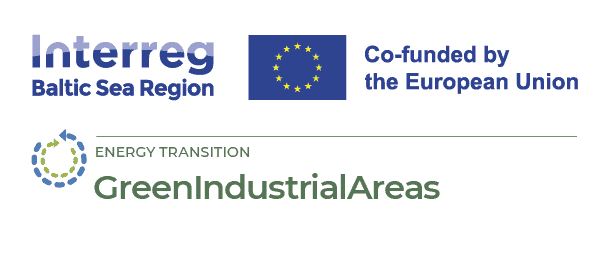
Interview with Dr. Gabriele Hoffmann, Head of Project, on the potentials of industrial areas' green certification
10 June 2024
At a recent event, you said that green industrial areas are an indicator of the ecological development of the economy in Mecklenburg-Vorpommern. What exactly do you mean by that?
Hoffmann: ‘Green industrial areas’ are industrial estates in which renewable energy concepts are implemented. If they fulfil certain criteria, they are certified as G³ (“Grüne Gewerbegebiete; green industrial areas). These criteria far exceed the legally required standards. They are therefore the best of the best. The more certified industrial areas we have, the more likely it is that the energy transition will succeed and the climate protection targets can still be achieved.
The criteria for green industrial areas for the current pilot phase as part of the Interreg GreenIndustrialAreas project go in some areas beyond the previous approach in Mecklenburg-Vorpommern (MV). Why do they include not only renewable energy concepts but also efforts to preserve biodiversity and promote the circular economy?
Hoffmann: This is the result of discussions with our project partners. The criteria set from MV was developed eight years ago and was kept very simple at the time. The current project criteria reflect the higher standards of the current certification. We ourselves would also like to evaluate our own criteria as part of the project. In order to meet this requirement, we have recognised that, in addition to renewable energies, the development of industrial areas also needs to take into account issues such as the use of renewable energies.
The discussions at project level also focus a lot on new technologies and trends. Where do you see the greatest potential for companies in MV to become even greener or more energy-efficient in the coming years?
Hoffmann: We all know about the current geopolitical challenges! Nevertheless, it is important that climate change continues to be addressed, especially in our own companies. New business decisions should always be made with sustainability in mind, i.e. in harmony with economic, ecological and social considerations. In medium-sized companies, a characteristic of MV, small changes can have a big impact. To this end, the advisory services offered by LEKA (Landesenergie- und Klimaschutzagentur; State Energy and Climate Protection Agency) and others in the state should be utilised. Regional co-operation between companies also offers opportunities that are not always exploited. The legal framework could also be simplified and customised through interest groups, for example. Finally, special state funding programmes can also be used to adapt/convert technologies to sustainable companies.





